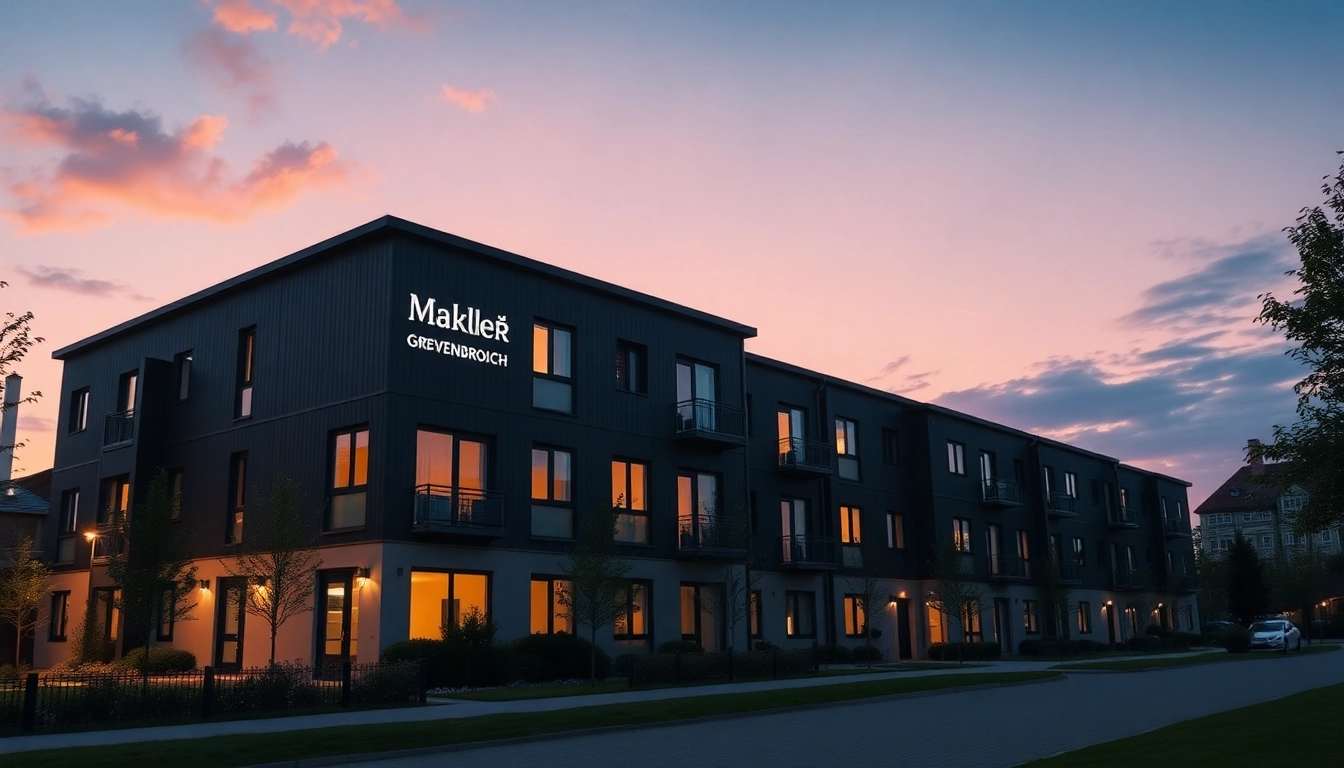Understanding Small Size Strata: Key Features and Benefits
Defining Small Size Strata in Vancouver
In the vibrant real estate landscape of Vancouver, the term small size strata refers to condominium or strata corporation communities that generally consist of fewer units—often less than 20. These can include cozy boutique condominiums, boutique townhouses, or compact multi-unit complexes. Unlike their larger counterparts, which may comprise hundreds of units, small strata communities tend to be tight-knit, with residents and owners sharing more direct relationships. This proximity fosters a sense of community but also introduces unique management considerations, especially in balancing individual privacy with collective responsibilities.
Small size strata are prevalent throughout Vancouver’s neighborhoods—from the historic charms of New Westminster to the family-friendly communities of North Vancouver. Whether they are newly established developments or historic buildings with decades of community history, managing these smaller communities requires a nuanced approach that acknowledges their distinctive scale and dynamics.
Advantages of Managing Smaller Communities
Managing small size strata offers a host of advantages for both property managers and residents. Foremost, the smaller scale often translates into more efficient decision-making processes. With fewer residents and units, issues can be addressed swiftly, fostering a more responsive management style. Additionally, the intimate environment enhances community engagement, allowing residents to build stronger relationships, which in turn promotes a harmonious living atmosphere.
- Personalized Service: Smaller communities allow property managers to tailor their services closely to residents’ needs, leading to higher satisfaction.
- Cost-Effectiveness: With fewer units, financial management, including maintenance budgets and operational expenses, can be more transparent and easier to oversee.
- Enhanced Community Interaction: Regular, direct communication with residents facilitates quicker resolution of issues and fosters a sense of ownership and pride.
- Flexibility in Management Practices: Adaptation to residents’ preferences is more feasible, enabling innovative approaches to community engagement and maintenance.
These benefits highlight why diligent management in small communities can be both rewarding and impactful—ensuring the community remains vibrant, well-maintained, and financially sustainable.
Common Challenges and Opportunities
While managing small strata communities presents notable advantages, it also comes with unique challenges. Limited resources, fewer economies of scale, and potential conflicts among residents can pose hurdles. For example, smaller budgets may restrict extensive upgrades or renovations, and close community ties might sometimes lead to disputes needing delicate handling.
However, these challenges also present opportunities for proactive management. Active resident participation can turn disputes into community-building moments. Innovative financial planning enables small strata to prioritize essential repairs, and personalized communication fosters trust and cohesion. Leveraging technology—such as management software and virtual meetings—can overcome resource constraints, streamlining operations and enhancing transparency.
Overall, recognizing and strategically addressing these challenges allows small strata to thrive while maintaining a high level of resident satisfaction and property value.
Effective Management Approaches for Small Size Strata
Tailored Financial and Maintenance Solutions
Customized financial strategies are crucial for small strata communities. Unlike larger complexes with dedicated finance teams, smaller strata often rely on property managers to handle budgeting, reserve planning, and expense management. Implementing a proactive reserve fund plan mitigates the risk of unexpected costs and ensures funds are allocated efficiently for anticipated repairs and upgrades.
Maintenance solutions should be predictable, budget-friendly, and focused on preventive care. Regular inspections and routine maintenance—such as HVAC servicing, plumbing checks, and common area upkeep—prevent costly emergency repairs. Leveraging local contractors familiar with the community fosters cost efficiencies and quick response times.
An example is implementing a recurring maintenance schedule supported by digital tracking tools, ensuring all tasks are completed on time, and costs remain transparent for residents and owners alike.
Community Engagement and Resident Relations
Building a strong sense of community is essential. Small strata can foster direct, personal interactions via regular owner meetings, social events, and digital communication platforms. Transparency about financial matters and management decisions increases trust and involvement.
Property managers can facilitate feedback sessions, actively solicit residents’ opinions, and implement suggestions, thus empowering owners to participate in shaping their community. This engagement not only reduces conflicts but also enhances residents’ sense of belonging, which is vital for long-term stability.
Legal Compliance and Regulatory Considerations
Regardless of size, strata corporations in Vancouver must adhere to the Strata Property Act and other relevant legislation. Smaller communities face similar legal obligations, including maintaining insurance, conducting annual general meetings, and keeping accurate records.
Due to the close-knit nature of small strata, legal compliance should be handled with meticulous attention to detail, preventing disputes and compliance penalties. Working with experienced property managers ensures that legal requirements are met proactively, including timely filings, dispute resolution, and appropriate documentation.
Invest in ongoing education for residents and council members for better understanding of their legal rights and obligations, creating a compliant and harmonious community environment.
Strategies to Maximize Property Value and Resident Satisfaction
Efficient Space Utilization and Upgrades
Optimal space management is essential for small strata units aiming to enhance comfort and value. Renovations focused on maximizing functionality—such as multi-purpose furniture, smart storage solutions, and modern upgrades—can significantly improve resident satisfaction and property attractiveness.
Strategic upgrades—like energy-efficient windows, lighting, or smart home technologies—not only elevate the living experience but also contribute to lowered operating costs and increased property desirability.
Smaller projects with high impact, such as lobby refurbishments or security enhancements, should be prioritized to boost community appeal and property valuation.
Implementing Budget-Friendly Maintenance Practices
Cost-effective maintenance strategies are vital to sustaining property value without straining community budgets. Regularly scheduled inspections and preventive repairs extend the lifespan of property components, while bulk purchasing and local vendor negotiations reduce costs.
Adopting environmentally sustainable practices—such as energy conservation measures—can lower operational expenses and appeal to eco-conscious residents.
Enhancing Community Experience and Retention
Resident retention is closely linked to community satisfaction. Implementing programs such as social events, community gardens, or shared amenities fosters belonging. Transparent communication about community successes and ongoing projects builds trust.
Recognizing long-term residents, facilitating open dialogue, and addressing concerns promptly cultivate loyalty and discourage turnover.
Leveraging Technology and Innovation in Small Strata Management
Smart Property Management Software
Modern property management relies heavily on technology. Cloud-based platforms enable transparent financial reporting, maintenance requests, and document sharing, accessible to owners and managers anytime, anywhere. Implementing such systems reduces administrative burdens and ensures data accuracy.
Virtual Meetings and Digital Communication
Especially in smaller communities, where residents may have diverse schedules, virtual meetings and online communication tools can keep everyone engaged. Secure video conferencing, email newsletters, and community portals streamline gathering input and disseminating information, ensuring continuous engagement without logistical hurdles.
Data-Driven Decision Making for Better Outcomes
Analyzing property performance data helps identify maintenance needs, track financial health, and forecast future expenses. Small strata can leverage data analytics to make informed choices that optimize resource allocation and enhance resident satisfaction.
Case Studies: Successful Small Size Strata Management in Vancouver
Localized Examples of Effective Strategies
In Vancouver’s West End, a boutique condominium with fewer than 15 units transformed its community by adopting proactive maintenance, regular resident surveys, and innovative upgrades such as smart thermostats. These initiatives improved energy efficiency and resident comfort, leading to increased property value and high resident retention.
Similarly, a small townhouse complex in Coquitlam utilized virtual meetings to replace traditional in-person gatherings, streamlining decision-making and reducing costs. This approach fostered higher owner participation and rapid resolution of community issues.
Lessons Learned and Best Practices
Successful management hinges on transparent communication, strategic financial planning, and embracing technological innovations. Engaging residents early in decision-making processes helps prevent conflicts and cultivate ownership. Regular maintenance, focused upgrades, and data-driven management ensure sustained community vitality.
Future Trends in Small Strata Management
The future of small strata management in Vancouver will be shaped by greater automation, sustainability initiatives, and community-centric technologies. Smart building systems, renewable energy integrations, and AI-driven management tools will become standard, enabling small communities to operate more efficiently and sustainably.


